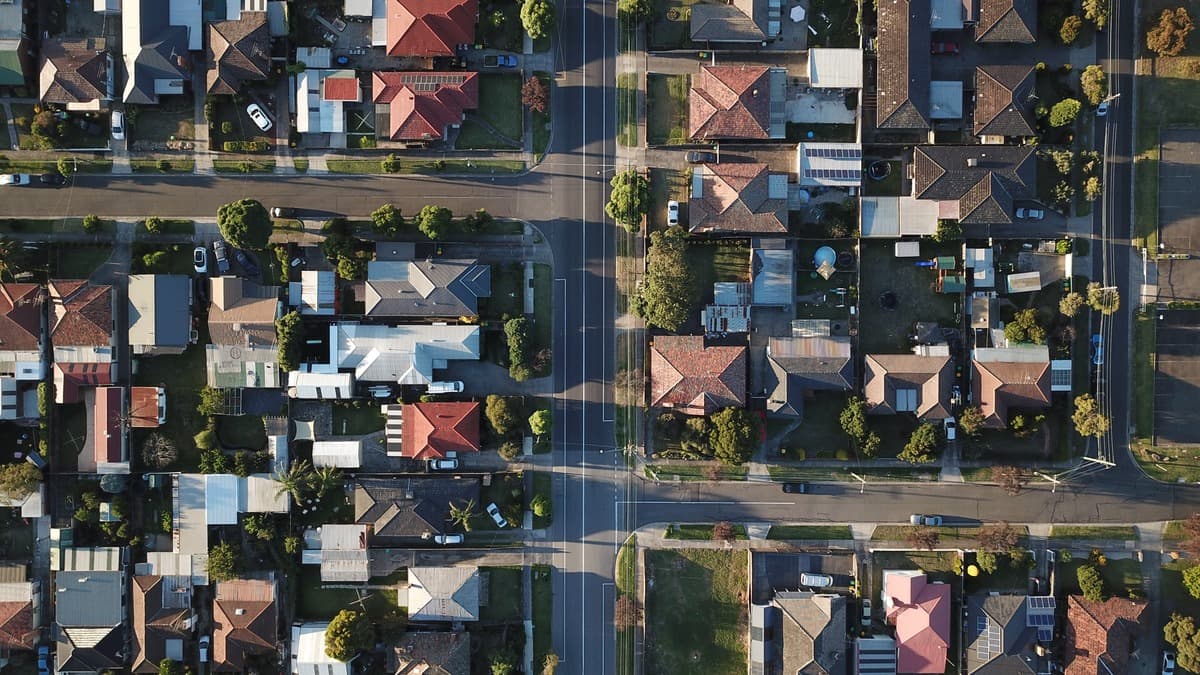Renowned property expert and best-selling author of “Positively Geared” and “Buy Now,” Lloyd Edge has expressed positivity regarding the property market’s outlook.
He predicts an impending increase in property values and anticipates that this trend will commence as soon as the latter half of 2023.
He cites the fact that property prices in Sydney rose by 1.4 per cent in March, indicating that we may have already seen the bottom of the market cycle for now.
However, recent research has revealed that not all Australians share Lloyd’s positive sentiment. In a recent nationwide survey commissioned by Aus Property Professionals, 2 out of 3 people (67 per cent) believed that it’s inevitable that Australia’s “property bubble” will burst soon.
Only 33 per cent of people said they didn’t believe this to be the case. The statistics were consistent across different age groups, genders, and state demographics. Of the majority who believe the bubble is close to bursting, 62 per cent said it will happen in the next five years, 21 per cent said it will happen within the next year, and 17 per cent said it in the next ten years or more.
Interestingly, almost 30 per cent of Australians ages 55 and over believe that the “property bubble” will burst in the next year, compared to only 15 per cent of people ages 18-19.
Commenting on the research, Lloyd says, “It’s unsurprising that the sentiment towards property is mostly negative right now, especially with all the pessimistic talk lately. However, keep in mind that in order for a major housing market crash to happen, we would need much higher unemployment rates and a huge oversupply of property. None of these things are occurring right now. Inflation figures have fallen for a second month in a row, there is no sign of a recession at this stage, and jobs data remains strong.”
Lloyd adds, “There is also unlikely to be further decline in property prices this year, as the market is stabilizing as interest rate increases start to level off. There are still plenty of buyers in the market and a lack of supply, which is keeping prices up.”
The last 12 months have been challenging for many homeowners. A series of unprecedented consecutive interest rate rises, where previously no rate hikes had been anticipated until 2024, has seen many homeowners scrambling to keep up with repayments. Furthermore, it’s expected that the so-called mortgage cliff is due to hit in the second half of 2023- that’s roughly 800,000 homes that will be rolling off 2 per cent fixed interest rates and moving on to 5 per cent or 6 per cent variable rates, leading some experts to predict a wave of defaults or urgent sales.
Lloyd began his own property journey at age 28 by buying a one-bedroom unit on a teacher’s salary of no more than $70,000 per year. Since then, he’s grown his portfolio to be worth over $20 million in value. For homeowners concerned about rolling off their fixed interest rate later this year, Lloyd offers the following advice:
Consider “house-hacking”: When you rent out a portion of your residential property to generate income that can be used to pay off your monthly expenses and mortgage repayments, it is known as “house-hacking.” To get extra cash flow coming in, you might want to consider renting out your spare room (or rooms) to help cover your mortgage repayments.
Speak to a mortgage broker: The first step you should take is to speak to a reputable mortgage broker. Your broker might be able to help you refinance to a better interest rate, which will alleviate some of the pressure on you. You never know what’s possible until you seek out reliable, professional advice.
Make additional repayments: If you’re able to make additional repayments on your mortgage, do so now. The extra repayments you make now will save you on interest down the track and put you in a better financial position for when your mortgage becomes variable.
Create a savings buffer: If you haven’t already, create a solid savings buffer of 3-5 months’ worth of essential expenses. This will ensure you feel secure and prepared for any unexpected financial challenges that might occur. Once your mortgage goes variable, if you have an offset account, you can put your savings in there so that you pay less interest and put more funds towards the principal each month. You’ll not only end up with a healthy savings buffer, but you’ll pay down more of the principal faster this way.
Invest in cash-flow positive assets: If you can afford to,purchasing an investment property with a high-rental yield, where the income is higher than the total expenses, is a way to generate more cash-flow. However, with interest rates at the highest they’ve been in several years, finding cash-flow positive investment properties is becoming increasingly challenging. A professional buyer’s agent can help advise you on how to find properties with a high rental yield.
Keep up to date with our stories on LinkedIn, Twitter, Facebook and Instagram.

